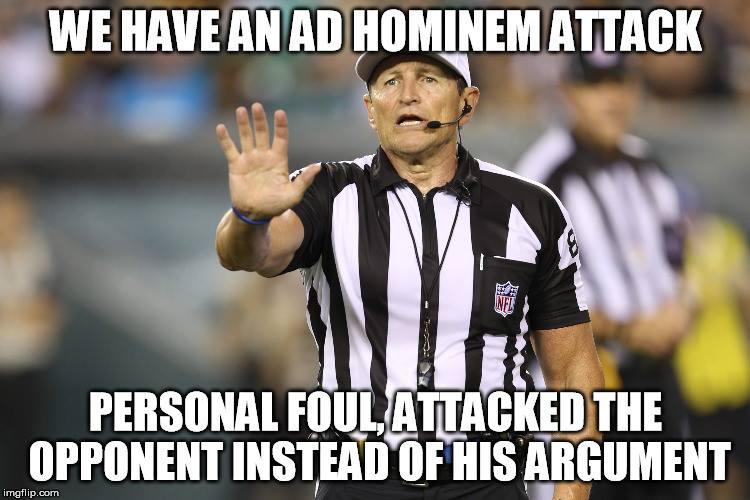 awm, on 2017-March-04, 11:30, said:
awm, on 2017-March-04, 11:30, said:
So... Why does he want a 50 billion dollar INCREASE in the military budget?
 rmnka447, on 2017-March-05, 00:44, said:
rmnka447, on 2017-March-05, 00:44, said:
So what? Our military strength and preparedness is a big part of our ability to execute our foreign policy and impinge on World affairs. If you have a reasonably strong and capable military, and, if necessary, are willing to use it, then it adds credence to what you are saying diplomatically. Or, as Theodore Roosevelt used to say, "Speak softly, but carry a big stick." If you don't have that strength, then all your tough talk is hollow, useless, and will be ignored by your potential adversaries.
As President Trump says, there are a lot of bad dudes out there. Iran, Russia, North Korea, China, etc. They are presently acting aggressively to test and push the US and lessen its influence around the world in favor of increasing their own. At some point, if those aggressive actions continued unchecked, it means we'll have to accept the hegemony of these bad dudes rather than our own, hopefully, benign influence around the world.
Let's take Russia. If you take a look at Russia's history through the 20th century, you understand one thing. Russians are tough. Any country that has undergone the ordeals they did is going to be left with people who are really tough and hard. (In WWII, they lost something like 10MM-20MM people I think) As a result, they only respect and respond to strength. If you are going to deal with them, you have to be strong and resolute. And likely, they are going to test how strong and resolute you are. If they sense weakness, they will take advantage of it. That's exactly what Putin did with his adventurism in the Ukraine when he figured out how weak President Obama was and that there'd be no consequences other than some burdensome sanctions for acting as he did.
It appears that President Trump is pursuing a two track approach to strengthening our military.
On one track, he wants to make sure the money we spend on the military is well spent, so we get maximum utility out of every dollar we spend. That means negotiating fair prices for military hardware we purchase and not overspending on the development of new military equipment. That's a similar approach to that President John F. Kennedy used when he appointed Robert McNamara, who was President of Ford, to be his Defense Secretary.
On the other track, if current spending can't supply the things needed to even maintain our current capabilities and preparedness, then additional funds are necessary for that. In addition, as we move forward, some military equipment and systems become dated and obsolete, and you need to replace them with newer, up-to-date equipment and systems. But those new systems don't just magically appear when needed. So you have to provide some funds for development of these new systems because of the lead time to have them ready to be procured when needed. But for these new systems to be ready "on time", you can't just rely on potential savings elsewhere. They require some up front spending.
These two tracks are not mutually exclusive, but can be quite complementary. If done right, developing efficiencies and savings in military spending will offset some of the additional funding for development and keep military spending under control as possible over time.
Very well said.
Currently we spend $600 billion annually on military expenditures.
Before we increase the military budget by $50 billion, Uncle Sam must require the Department of Defense (DoD) to do two things:
1) Fix that damn year-end $6.0 trillion+ accounting entry problem it has had for the last 17 years so we can get some reliable financial statements to justify larger budget appropriations. Uncle Sam and the public at large deserves some reliable financial statements from the DoD that contain "clean" audit opinions from the DoD Inspector General. It is 2017, not 2005. The only thing standing in DoD's way is DoD and its recalcitrance. Transparency hasn't been ingrained in its management culture yet.
2) Once the accounting problem is fixed, the DoD must identify cost savings opportunities. That is what normal managers do when they finally have financial statements they can rely on. The DoD wants an 8.3% increase ($50 billion) over its current budget, no problem! Come up with at least $5 billion in cost savings opportunities. . .that is 1% of its current budget and 10% of what is currently asking for as an increase. This is called giving to get. Our military deserves to come to the table with some pork reduction opportunities because no one believes the entire $600 billion is being spent responsibly.
Former Defense Secretary Donald Rumsfeld was asking the same thing in 2001:
https://www.hsdl.org.../?view&did=2423
http://archive.defen...anscriptID=1890
Quote
Hume: How much would that be?
Rumsfeld: It's about $15-18 billion.
Hume: On top of anything else you're asking for.
Rumsfeld: Exactly. And that's why we simply have to go after this bureaucracy and see that this institution adapts to the new circumstances that exist.

 Help
Help





